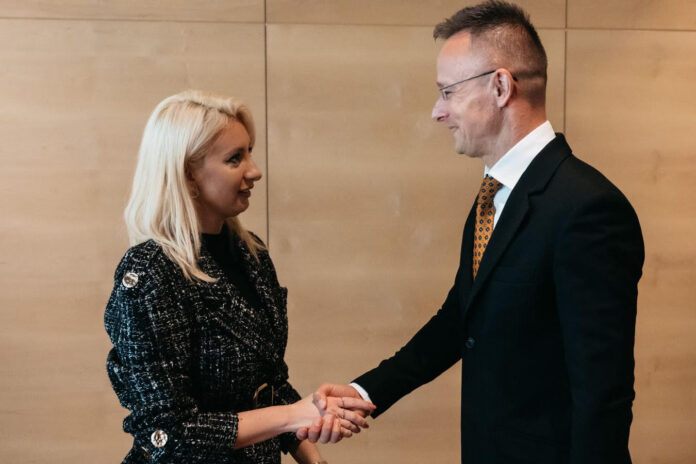On the sidelines of the “Europe Summit” organized by the Institute of the Regions of Europe (IRE) in Salzburg, Minister of European Affairs Maida Gorčević held a series of bilateral meetings with officials from EU member states. Gorčević met with Hungarian Foreign Minister Péter Szijjártó, Austrian Federal Minister for the EU and Constitution Karoline Edtstadler, Croatian Minister of Regional Development and EU Funds Šime Erlić, and Slovenian Minister of Cohesion and Regional Development Aleksander Jevšek.
Minister Gorčević informed her colleagues about Montenegro’s progress in the negotiation process and the successful completion of the Reform Agenda for the Growth Plan for the Western Balkans. ” Montenegro regained momentum in 2024 with significant progress towards closing negotiation chapters, reigniting optimism for EU membership despite a long wait.”
“This year, Montenegro is set to hold the third Intergovernmental Conference and crown the government’s successful first year with the closure of four negotiation chapters. This follows a period of stagnation, and it’s the first time in seven years that Montenegro is temporarily closing chapters. This is expected to happen at the Intergovernmental Conference with the EU by the end of December,” explained Gorčević.
Regarding the Reform Agenda for the Growth Plan, Gorčević explained that Montenegro has prepared a set of reforms, as well as numerous projects included in this document, which will be funded with €383 million earmarked for Montenegro until 2027.
“The first tranche is expected by the end of the year, and in addition, Montenegro will soon join the Single Euro Payments Area (SEPA), simplifying cross-border financial transactions, enhancing business operations, and further attracting EU companies,” Gorčević said.
Minister Szijjártó praised Montenegro’s efforts and significant progress in the negotiation process, stating that Montenegro has a clear path for closing negotiation chapters. Hungary is preparing the Intergovernmental Conference during its presidency of the EU Council, where Montenegro will close four chapters. He added that one of the main goals of Hungary’s presidency is EU enlargement in the Western Balkans.
“Austria advocates for a merit-based approach, and Montenegro has advanced the furthest in the negotiation process. I believe it can become the 28th member of the European Union by 2028. Montenegro’s admission can motivate and serve as an example to other candidate countries, so they don’t lose faith in the process and see that enlargement is possible,” said Minister Edtstadler during the meeting.
In her discussions with the Croatian Minister of Regional Development and EU Funds, they talked about transforming IPA funds into regional funds and how to prepare for what lies ahead post-membership. Minister Erlić noted the need to strengthen administrative capacities to meet the challenges of regional funds and fully utilize the EU funds available. He emphasized that Croatia’s model could be applicable to Montenegro, as it has proven successful, with Croatia among the leading EU countries in approved funding.
“Croatia is an example of the transformative power of EU membership, and we want all neighboring countries in the EU. This is a security guarantee for the Union and candidate countries alike,” said Erlić.
Minister Jevšek offered Slovenia’s assistance in cohesion policy to help Montenegro prepare for post-membership, with regional funds bringing more opportunities and funding. He stated that Slovenia is ready to share knowledge and experience in EU funds to strengthen Montenegro’s administrative capacities.
Minister Gorčević also had the opportunity to speak about Montenegro’s need for expert assistance across all areas, given its limited capacities and the significant work ahead to close all negotiation chapters and prepare for membership with Latvian Deputy Foreign Minister Ingrīda Levrence and Dieter Hempel, Director of the Agency for Economic Cooperation and Development (AED).


